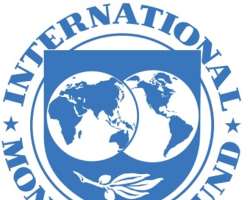Statement by the IMF Mission at the End of a Visit to Tunisia

TUNIS, Tunisia, December 3, 2013/African Press Organization (APO)/ -- At the request of the Tunisian authorities, a mission from the International Monetary Fund (IMF) headed by Mr. Amine Mati visited Tunis from November 12-27, 2013 in the context of the first and second reviews of Tunisia's economic and reform program supported by a 24-month stand-by arrangement approved by the IMF Executive Board on June 7, 2013. This arrangement supports Tunisia's 2013-2015 program aimed at preserving fiscal and external buffers, promoting stronger and more inclusive growth, and protecting the most vulnerable in the population. At the end of the visit, Mr. Mati issued the following statement:
“The mission held productive meetings with the Prime Minister and with several senior government and central bank officials. It also met with representatives of the banking and private sectors, trade unions, political parties, the donor community, and civil society. The mission discussed the status of the government's economic and reform program, the country's economic and financial situation and challenges to be addressed, as well as the best ways for the IMF to continue supporting Tunisia in its political transition process.
“In recent months, major exogenous and endogenous shocks have posed serious challenges to the Tunisian economy. The lengthy consultation process required to complete the political transition, as well as security incidents, have had an adverse effect on confidence in the Tunisian economy, as reflected in slower growth, delayed reform implementation, and investors' prolonged wait-and-see attitude.
“Thus, in 2013, the recovery of the Tunisian economy continued at a lower-than anticipated pace, with a real growth rate estimated at 2.7 percent, driven by public and private services. Overall inflation fell to 5.8 percent (year-on-year) at-end October and is expected to ease further to 5.5 percent at year-end following a slowdown in the rise of food prices and a cautious monetary policy. The current account deficit continues to rise and will stand at around 8.2 percent in 2013, reflecting the low level of tourism revenues coupled with weak external demand for Tunisian products. The budget deficit (on a cash basis, excluding grants and privatization revenues) is expected to widen to 8.8 percent of GDP in 2013, following the increase in energy subsidies, higher-than-anticipated arrears payments, as well as additional expenditures corresponding to the budget for 2012 but paid for in 2013 during the complementary period.
“Short-term risks to the outlook are important and to the downside. To address the main challenges facing Tunisia, immediate and urgent efforts are required to control budget and external deficits, reduce banking sector vulnerabilities, and generate more rapid and inclusive growth that can absorb unemployment while reducing social and economic disparities.
“Prerequisites for preserving macroeconomic stability include a shift toward greater fiscal consolidation—while safeguarding priority social spending and growth-generating public investment—in addition to the pursuit of a more restrictive monetary policy and a more flexible exchange rate policy. Furthermore, it is essential to speed up the implementation of the government's reform program in order to generate more rapid and inclusive growth, including through the reform of the banking sector, the introduction of new procurement procedures, the new investment code, and a household support program for the most vulnerable.
“Discussions on completing the first and second program reviews are at a very advanced stage. The IMF remains fully committed to supporting Tunisia through financing, economic and financial policy advice, and technical assistance.
“The mission wishes to thank the authorities and all those with whom they met for their warm welcome, the excellent arrangements for their meetings, and the frank and productive discussions.”
